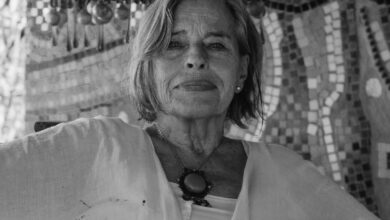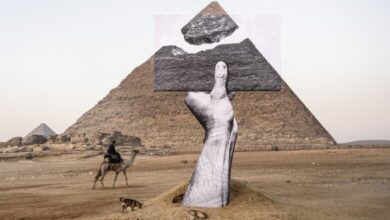In a new series called "World culture," the Al-Masry Al-Youm culture staff reviews the week’s best, worst, and biggest in art, books, cinema, and more.
An excerpt from Mark Cousin’s debut film called, appropriately, The First Movie, depicts the lives of Kurdish Iraqi children, as they see it. Dubbed by the filmmaker as a “magic-realist documentary,” The First Movie was filmed by its subjects.
Pavement, the seminal indie rock band headed by Stephen Malkmus, which officially broke up in 1999, reunites in New York City. It rains the entire time.
The much-anticipated film adaptation of Allen Ginsberg’s poem Howl–-the now-classic long tirade that was, at the time of its writing, the focus of a censorship trial–is released, and reviewed. The beat poet is played by James Franco and a pair of iconic glasses.
Moroccan dance premieres in the US. The performance is a good blend “of both Muslim calls to prayer and flamenco ballads of passion and longing.”
Franz Kafka’s dying wish that all his unpublished work be burned went unheeded, the result of which is some of his best-loved books. Author Elif Batuman writes gloriously about the ongoing battle over Kafka’s remaining papers, a series of events that can, apparently, only be described as “Kafkaesque.”
“Allah rarely targets the rich.” Tariq Ali writes about the flooding in Pakistan for the London Review of Books. (Subscription required.)
Virginia Woolf's historical novel about a transgendered English nobleman, more or less, premieres on stage in an adaptation by Sarah Ruhl.
Next week is Banned Book Week. Here are ten suggestions for how to observe it. Most of them involve reading, one involves blogging. May we suggest reading Howl or Orlando.
The British literary journal Granta devotes its most recent issue to Pakistan, featuring old and new writers from the country. The cover art is more colorful, but less, well, colorful, than its issue on sex.
Pop singer Katy Perry is evicted from Sesame Street.
Following the debacle spearheaded by a bigoted preacher in Florida, Ted Widmer draws attention to the “true history of the Quran in America,” including the story of “Adams’s Quran,” a copy of the holy book which belonged to John Adams, the second president of the US. Widmer writes, that “to a remarkable degree, the Quran is not alien to American history — but inside it.”
It’s No Make-Up Week, somewhere.
Gifts from literary places: All the Paris Review interviews–from Nabokov to Baldwin–are now available online for free.
Art publisher Taschen announces the publication of “Trespass: A History of Uncommissioned Urban Art,” which includes work from Banksy, Keith Haring, and the Billboard Liberation Front.
Lawyer Rafia Zakaria examines Sharia law through the eyes of a feminist, with surprising results, in the terrific literary journal Guernica.
An excerpt from Peter Godwin’s forthcoming book The Fear: The Last Days of Robert Mugabe begins, “In late March of 2008, I headed home to Zimbabwe, in great excitement, to dance on Robert Mugabe's political grave.”
And, a poem.




